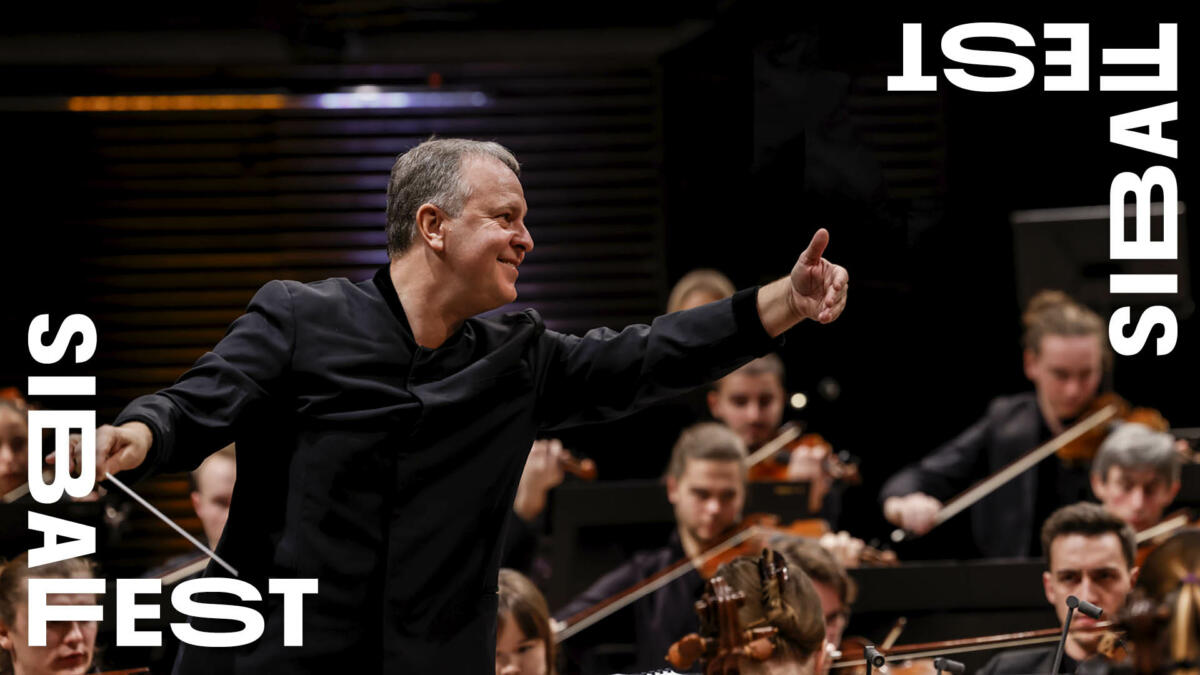Sibafest: Sibelius Academy Symphony Orchestra – Resurrections
The Sibelius Academy Symphony Orchestra performs works by Messiaen, Beethoven and Bartók under the direction of Conductor Sakari Oramo

Soloists from among the students of the Sibelius Academy include violinist Iidamari Ahonen, cellist Artturi Aalto and pianist Tsotne Sidamonidze.
L’Ascension, Resurrection Day (1932–33) is the first significant orchestral work of Olivier Messiaen, a master of Catholic mysticism, and is still among his best-known compositions. It consists of four symphonic meditations.
Beethoven took only one student when living in Vienna: Archduke Rudolf, the youngest son of Emperor Leopold II. The trinity concerto – composed in 1803 for piano, violin, cello, and accompanying orchestra – reflects the capacities of the soloists: the Archduke was only 15 years old and so the piano section is relatively simple. Based on their musical scores, however, the violinist Seidler and cellist Kraft – who were members of the royal court – were quite accomplished musicians. Indeed, it is enough to get the audience worried when these musician’s left hands move right up into the path of their bows. Will they run out of space on the fingerboard?
Bartók was in a bad way in 1940-42. He had fallen ill with leukaemia and his performance calendar had emptied in a flash. He didn’t even have the strength to compose. In the summer of 1943, Serge Koussevitzky, Chief Conductor of Boston Symphony, visited the composer in hospital to order a large orchestral work. Bartók tore off his medical tubes, rose from his bed, went home, and composed. The end result is his most loved work, the Concerto for Orchestra.
The concert will also be performed in the Sibelius Concert Hall in Järvenpää Hall on 28 January 2024. Further information and tickets
Further information: Janne Ikäheimo, janne.ikaheimo@uniarts.fi
Sibafest 26–27 Jan 2024
On 26–27 Jan, the main event of Sibelius Academy’s Sibafest will fill out the Helsinki Music Centre. The festival kicks off a year packed with a thousand concerts. At Sibafest, you can follow the rehearsals for the Marriage of Figaro, try out the organ, peek behind the scenes of the symphony orchestra and participate in a techno concert and panel discussions.
Now taking place for the tenth time, Sibafest is the biennial main event of the Sibelius Academy of the University of the Arts Helsinki. The event presents the Academy’s internationally top-quality concert activities. The main parts are played by the Sibelius Academy’s own students and teachers and well as the audience themselves – both together and separately.
Soloists from among the students of the Sibelius Academy include violinist Iidamari Ahonen, cellist Artturi Aalto and pianist Tsotne Sidamonidze.
L’Ascension, Resurrection Day (1932–33) is the first significant orchestral work of Olivier Messiaen, a master of Catholic mysticism, and is still among his best-known compositions. It consists of four symphonic meditations.
Beethoven took only one student when living in Vienna: Archduke Rudolf, the youngest son of Emperor Leopold II. The trinity concerto – composed in 1803 for piano, violin, cello, and accompanying orchestra – reflects the capacities of the soloists: the Archduke was only 15 years old and so the piano section is relatively simple. Based on their musical scores, however, the violinist Seidler and cellist Kraft – who were members of the royal court – were quite accomplished musicians. Indeed, it is enough to get the audience worried when these musician’s left hands move right up into the path of their bows. Will they run out of space on the fingerboard?
Bartók was in a bad way in 1940-42. He had fallen ill with leukaemia and his performance calendar had emptied in a flash. He didn’t even have the strength to compose. In the summer of 1943, Serge Koussevitzky, Chief Conductor of Boston Symphony, visited the composer in hospital to order a large orchestral work. Bartók tore off his medical tubes, rose from his bed, went home, and composed. The end result is his most loved work, the Concerto for Orchestra.
The concert will also be performed in the Sibelius Concert Hall in Järvenpää Hall on 28 January 2024. Further information and tickets
Further information: Janne Ikäheimo, janne.ikaheimo@uniarts.fi
Sibafest 26–27 Jan 2024
On 26–27 Jan, the main event of Sibelius Academy’s Sibafest will fill out the Helsinki Music Centre. The festival kicks off a year packed with a thousand concerts. At Sibafest, you can follow the rehearsals for the Marriage of Figaro, try out the organ, peek behind the scenes of the symphony orchestra and participate in a techno concert and panel discussions.
Now taking place for the tenth time, Sibafest is the biennial main event of the Sibelius Academy of the University of the Arts Helsinki. The event presents the Academy’s internationally top-quality concert activities. The main parts are played by the Sibelius Academy’s own students and teachers and well as the audience themselves – both together and separately.